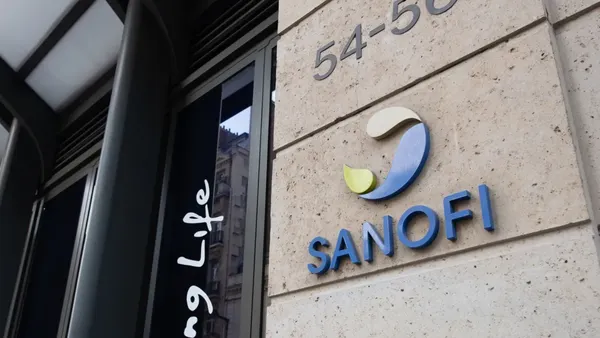Today, a brief rundown of news involving Bayer and Axsome Therapeutics, as well as updates from GSK, Novo Nordisk and Augustine Therapeutics that you may have missed.
Bayer is adding to its cancer drug pipeline via a deal with China-based Suzhou Puhe BioPharma, securing a worldwide license to a small molecule medicine that’s just begun Phase 1 testing. The medicine, now dubbed BAY 3713372, blocks an enzyme known as PRMT5 that is thought to play a role in the cell cycle. Bayer will develop it for tumors that have deletions in a gene called MTAP, which is estimated to occur in 10% to 30% of all cancers, according to research cited by the company. Other developers, including Amgen, are working on PRMT5 inhibitors, too. — Ned Pagliarulo
A drug from Axsome Therapeutics reduced ADHD symptoms and severity more than a placebo did in a Phase 3 study of just over 500 adults, the company said Tuesday. Results for a 150 milligram dose of the drug, called solriamfetol, met the study’s primary and secondary goals after six weeks, but a higher, 300 milligram dose did not. This “inverse dose response” was flagged by several analysts and may have played a role in Axsome shares sinking by about 7% on Tuesday. The company plans to start a pediatric study later this year and also expects data this quarter from a study of solriamfetol in major depressive disorder. — Ned Pagliarulo
GSK is partnering with the U.K. Dementia Research Institute and Health Data Research U.K. to study whether its shingles vaccine can reduce the risk of dementia. The collaboration announced Tuesday builds on several retrospective studies that have drawn a link between GSK’s Shingrix and neurodegenerative conditions, and will look at National Health Service data from 1.4 million 65- and 66-year-olds in the U.K. Shingrix brought in £848 million, or a little over $1 billion in sales, in 2024. — Gwendolyn Wu
Novo Nordisk is expanding the availability of lower-priced Wegovy, announcing Tuesday that uninsured or self-pay patients can buy the obesity drug for $499 per month at their local pharmacy. Previously, the lower cash price for the drug had only been available via Novo’s direct-to-consumer online pharmacy, launched earlier this month. People covered by Medicare or Medicaid aren’t eligible, nor are people on commercial insurance plans that cover Wegovy. The offering is Novo’s answer to Eli Lilly’s DTC and cash-pay programs for its rival weight loss drug Zepbound. — Ned Pagliarulo
Belgian biotechnology startup Augustine Therapeutics said Monday it raised €77.7 million euros, or $84.8 million, in a Series A round designed to bring part of its pipeline of central nervous system and cardiometabolic drugs into the clinic. AGT-100216, Augustine's lead program, targets a group of genetic disorders called Charcot-Marie-Tooth disease, which causes nerve damage in the arms and legs. Novo Holdings and Jeito Capital led the financing, which had backing from nine other investors including Eli Lilly and Asabys Partners. — Gwendolyn Wu











